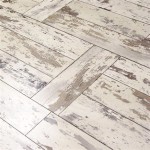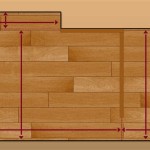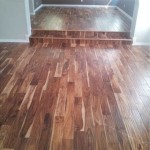Essential Aspects of Choosing Best Vinyl Tile Flooring for Basements
When it comes to selecting the perfect flooring for your basement, vinyl tiles stand out as a highly practical and versatile option. With their ability to withstand moisture, durability, and ease of maintenance, vinyl tiles offer many benefits for basements. However, choosing the best vinyl tile flooring for your specific needs requires considering several essential aspects.
1. Material Composition:
Vinyl tiles are primarily composed of polyvinyl chloride (PVC), a synthetic material known for its resilience and water resistance. They come in two main types: solid vinyl tiles (SVT) and luxury vinyl tiles (LVT). SVTs are made of a single layer of PVC, while LVTs consist of multiple layers that provide additional durability, comfort, and visual appeal.
2. Moisture Resistance:
Due to basements being prone to moisture, choosing flooring with excellent moisture resistance is crucial. Vinyl tiles excel in this regard, as they are waterproof and can withstand accidental spills, leaks, and even standing water. This makes them an ideal choice for basements that may experience moisture issues.
3. Durability and Wear Resistance:
Basements are often used for various activities, making durability an important consideration. The wear layer of vinyl tiles determines their resistance to scratches, dents, and scuffs. Choose tiles with a thicker wear layer for areas with heavy traffic or potential impacts.
4. Installation:
Vinyl tiles offer two primary installation methods: glue-down and click-lock. Glue-down tiles are adhered to the subfloor using an adhesive, while click-lock tiles feature interlocking edges that allow them to be snapped together without glue. Click-lock tiles are easier to install and can be a good option for DIYers.
5. Aesthetics and Design:
Vinyl tiles come in a wide range of colors, patterns, and textures, enabling you to create a unique and stylish look for your basement. Whether you prefer the classic look of hardwood or the modern appeal of stone, there's a vinyl tile option to match your design preferences.
6. Maintenance and Cleaning:
Vinyl tile flooring is renowned for its easy maintenance. Regular sweeping or vacuuming removes dust and debris, while occasional mopping with a mild cleaner keeps it looking its best. Vinyl tiles are also stain-resistant, making them a low-maintenance flooring option.
7. Cost and Value:
Vinyl tiles are generally more affordable than other flooring options, offering a cost-effective solution for basements. However, the price can vary depending on factors such as tile size, type, and features. By comparing prices and considering the long-term durability and ease of maintenance, you can find vinyl tiles that provide excellent value for money.
Conclusion:
Choosing the best vinyl tile flooring for your basement involves considering factors such as material composition, moisture resistance, durability, installation method, aesthetics, maintenance, and cost. By carefully evaluating these aspects, you can select vinyl tiles that meet your specific needs and create a functional and stylish basement space.

Basement Flooring Guide

What Is The Best Flooring For Basements Get Pros And Cons

Best Basement Flooring Options Liquidators

The Best Flooring For Basement Renovations Guide Reallyfloors America S Est Hardwood

The Best Flooring Options For Your Basement

What Are The Best Flooring For Basement In Homes

Selecting The Best Basement Flooring Next Day Floors

Vinyl Plank Flooring Installation Basement Remodel Before And After

Lvt Vs Carpet What S Better For A Basement

The Best Basement Flooring Options Inc
Related Posts








